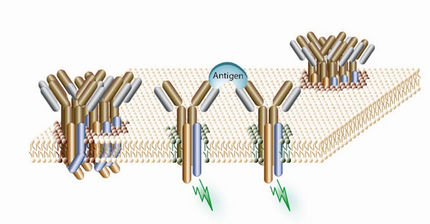Oxford Biomedica announces US IND approval for novel ocular product in wet AMD
First of four ocular gene therapies partnered with sanofi-aventis approved to enter Phase I/II clinical development
Advertisement
Oxford BioMedica plc announced that the US food and Drug Administration (FDA) has approved its Investigational New Drug (IND) application for the Phase I/II clinical development of RetinoStat®, a novel gene-based treatment for neovascular “wet” age-related macular degeneration (AMD). RetinoStat® was designed and developed by Oxford BioMedica using the Company's proprietary LentiVector® gene delivery technology and is the lead programme of the ocular agreement the Company signed with sanofi-aventis in April 2009.
The approval of the IND follows the decision by the US Recombinant DNA Advisory Committee (RAC) to unanimously approve the RetinoStat® Phase I/II protocol in September 2010. The open label dose escalation and safety Phase I/II study will enrol 18 patients with wet AMD at the Wilmer Eye Institute at Johns Hopkins, Baltimore (USA). The study, led by Professor Peter Campochiaro, will evaluate three dose levels and assess safety, aspects of visual acuity and ocular physiology. Subject to receiving local approvals, the study is anticipated to be initiated by the end of December 2010.
AMD is a major cause of blindness affecting an estimated 25 to 30 million people worldwide and the incidence of AMD is expected to triple by the year 2025 (source: AMD Alliance International). Neovascular “wet” AMD accounts for the majority of all severe vision loss from the disease. RetinoStat® delivers two anti-angiogenic genes, endostatin and angiostatin, directly to the retina and aims to preserve and improve the vision of patients through anti-angiogenesis which blocks the formation of new blood vessels. On the basis of pre-clinical data, it is anticipated that RetinoStat® will require only a single administration which would give the product a significant advantage in the market over currently available treatments that often require frequent, repeated administration.
Under the terms of the agreement signed with sanofi-aventis in April 2009, Oxford BioMedica is responsible for the pre-clinical and initial Phase I/II studies of four lentiviral vector-based product candidates in the field of ophthalmology: RetinoStat® for “wet” AMD, StarGen™ for Stargardt disease, UshStat® for Usher syndrome 1B and EncorStat® for corneal graft rejection. Oxford BioMedica granted sanofi-aventis a license to develop the products and an option for further development, manufacture and commercialisation on a worldwide basis. At any time prior to or within a defined period after completion of each Phase I/II study, sanofi-aventis can exercise its option to license the products and will then assume responsibility for on-going activities. Sanofi-aventis also has rights to broaden its license to develop the four products in additional indications, and has rights of first refusal to license other lentiviral vector-based products for the treatment of ocular diseases.




















































